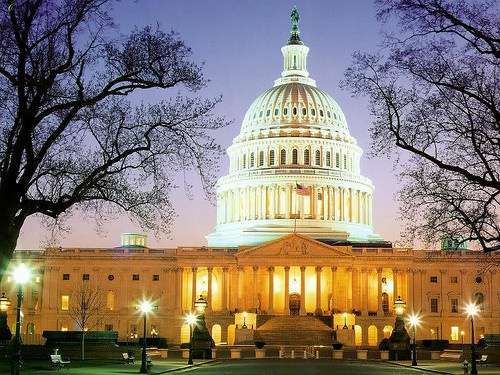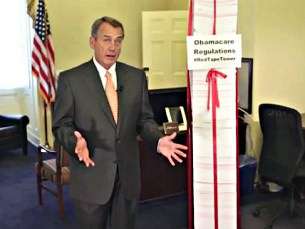Democrats Defy White House on Obamacare, Vote Against Individual and Employer Mandates

When the Obama administration delayed the start of the Affordable Care Act's employer mandate, legal experts responded with raised eyebrows. Did the administration really have the authority to postpone implementation of the provision? After all, the law clearly stated that the mandate and related penalties were to begin in 2014. Congress had not given President Obama the authority to delay the provision's start date.
Then something interesting happened. House Republicans offered to give President Obama explicit authority to delay the employer mandate. They put together a bill, and declared their intention to pass it along with another bill that would also delay the law's individual mandate by a year.
President Obama's response was telling. He threatened to veto the bills should they come to his desk. Indeed, he threatened rather forcefully, with the White House issuing a statement of administration policy declaring the president's intention to nix the two pieces of legislation should they come to his desk. The statement dismissively described the employer-mandate bill as "unnecessary."
Then something really interesting happened. The House held a vote on the two bills yesterday. And the legislation giving the White House authority to delay the employer mandate passed on a 264 to 161 vote—with 35 Democrats voting for it. Unlike the White House, these 35 Democrats seemed not to think that it was "unnecessary" to get congressional approval before changing law. House Democrats aren't the only ones who have questioned the administration's authority either. Asked earlier this month whether the president could unilaterally delay the provision, Sen. Tom Harkin, the senior Democrat on the Senate health committee, and one of Obamacare's authors, responded to The New York Times, "This was the law. How can they change the law?"

How, indeed. One way to interpret the White House's veto threat is, as the Cato Institute's Michael Cannon remarks, that President Obama "supports rewriting federal law—but only if he does it. Not if Congress does it." That's not likely to be a winning message with members of congress who believe it's their job to write and make laws.
Which may help explain the most interesting development of all, which is that 22 House Democrats also voted with the Republican majority to delay the individual mandate as well.
Now, by itself, repealing just the law's individual mandate while leaving the rest of its insurance regulations regulations intact is not good policy. In fact, it's a recipe for an insurance death spiral, and perhaps an even bigger policy mess than Obamacare is now.
But here's the thing: Democrats—including the 22 Democrats who voted to delay the mandate—know this. They know it because that's the reason that Democrats, aware of the provision's unpopularity, agreed to include a mandate in the first place. They know it because multiple liberal think tanks reminded them this week of the individual mandate's importance to the overall coverage scheme. They know it because throughout the individual mandate's legal challenge, the Obama administration emphasized repeatedly that it was critical to the law's survival. They know it because health insurers who have been counting on the mandate fretted loudly this week if the individual mandate is delayed, the exchanges would have to be postponed too. The bulk of the law, and its central innovation, would be on hold.
Democrat legislators know all this—and yet 22 of them voted, against their president, and against their party, to delay the individual mandate anyway.
Part of what this tells us is that the individual mandate is unpopular, and legislators don't want to be seen voting for it if they can avoid it. But it also suggests that there's a divide opening up between at least a handful of congressional Democrats and the White House, where some of them willing to cast a vote that not only directly contradicts the the White House, but serves as a potential precursor to delaying the bulk of Obamacare as well.
For now, of course, it's a safe, symbolic vote. And in all likelihood, it'll stay that way. But if the divide between the administration and enough congressional Democrats widens further, how long before it might have real, practical consequences?


Show Comments (75)